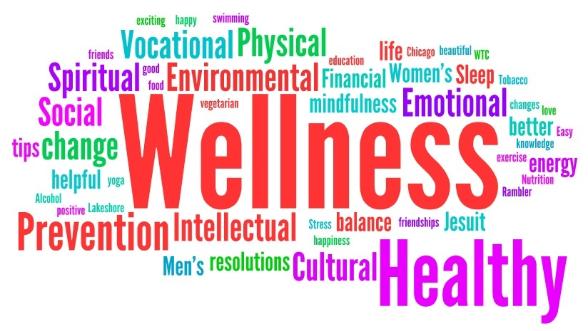Wellness encompasses more than physical health alone; it encompasses aspects such as emotional, environmental, financial, intellectual, and spiritual well-being as well. Each wellness dimension plays an integral part in your overall health and happiness; often, improving one also improves the other.
1. Physical Health
Physical health encompasses aspects like fitness, nutrition, and an absence of chronic illness or physical pain. Regular exercise improves sleep patterns and energy levels while decreasing risk for disease and creating neurotransmitters that promote feelings of well-being in your brain.
Poor physical wellness can result in numerous issues, including cardiovascular ailments, limited mobility and flexibility issues, and digestive ailments such as heartburn or constipation, as well as inactivity, leading to further decline. Inactivity also plays an integral part in poor physical wellness. To achieve and sustain physical wellness, focus on adopting healthier eating habits, engaging in regular physical activity, and limiting screen time. Finding balance may prove challenging at times; perhaps one dimension will take precedence over others at certain times.
2. Mental Health
Wellness is an inclusive multidimensional approach to personal well-being that involves physical, emotional, social, and spiritual development. While traditional healthcare approaches focus on disease diagnosis and management alone, wellness includes lifestyle factors and spiritual well-being as part of its definition. Physical wellness encompasses regular exercise, a nutritious diet, and restorative sleep habits. Additionally, mindfulness practices such as meditation or breathing exercises may play an integral part.
Spiritual wellness encompasses practices such as prayer and gratitude. It can also refer to having a sense of meaning and purpose in life or feeling connected with nature. Achieving balance across all eight dimensions of wellness may be difficult. Therefore, you must identify which aspects are most important for you and work toward them daily.
3. Emotional Health
Emotional health refers to our ability to optimally manage both positive and negative emotions, including learning how to recognize and acknowledge feelings (even those we may consider negative) while simultaneously developing strategies to cope with difficult times.
People who maintain satisfactory emotional health are better able to maintain resilience, often with an optimistic view of life. They can keep their spirits high even during difficult periods and work toward accomplishing both personal and professional goals with greater ease. To achieve emotional wellness, the key components are adequate sleep, a nutritious diet, and physical exercise. Connecting regularly with others—in person and online—also plays an integral role.
4. Social Health
Social wellness is defined by our fundamental need to connect. Physical fitness can be enhanced through exercise and diet; social well-being also involves building relationships and participating in communities.
Studies have revealed that those in poor social health are at greater risk of depression and other mental health disorders. Personality traits often dictate which relationships individuals seek and whether these are satisfying for them.
5. Financial Health
Financial health can be defined as the ability to effectively manage daily expenses, absorb unexpected financial shocks, and progress toward meeting long-term financial goals. Prudent spending practices, effective debt management techniques, regular savings plans, and strategic investments all play an essential role.
Financial health can include multiple dimensions: “financial freedom,” which refers to being able to enjoy life without incurring debt, and “financial control,” or feeling in charge of one’s finances. We measure emergency savings, which include both unexpected expenses and anticipated ones like retirement or college tuition, against our measures of financial health. Our team’s research demonstrates the interdependence between the eight dimensions of wellness, ranging from physical to mental. Addressing one dimension could impact another; thus, it is essential to create balance in all areas of your life.
6. Intellectual Health
Embracing lifelong learning and pushing your own critical thinking and creative capabilities to their limits are key components of intellectual wellness. There are many ways intellectual well-being can be supported: attending special lectures on campus, seeking academic support services, or simply exploring something new during free time are just a few ways to ensure it.
Intellectual wellness requires openness to new ideas, cultures, and skills. You can support your intellectual wellness by learning a foreign language, enrolling in non-major courses outside your major field, participating in cultural activities, or simply enjoying hobbies such as reading.
7. Spiritual Health
Spiritual health should also be given the attention it deserves, for many find comfort and fulfillment through spiritual connections that transcend themselves, whether that means religious beliefs, community involvement, or simply fulfilling personal purpose.
The McKinsey Global Gen Z Employee Survey found that employees across 26 countries reported spiritual health as either somewhat or critical (see sidebar). Understanding there are different forms of spirituality and their effects can provide a platform for discussions within organizations.
8. Vocational Health
Vocational health can be defined as experiencing satisfaction and enrichment from our work, such as reflecting upon why we work, identifying career/volunteer opportunities that meet our interests/values, practicing open communication/conflict management at work, and taking advantage of educational/professional development resources. Physical wellness encompasses taking adequate care of yourself through regular physical activities, proper nutrition, and monitoring health indices to make informed choices about health outcomes.




